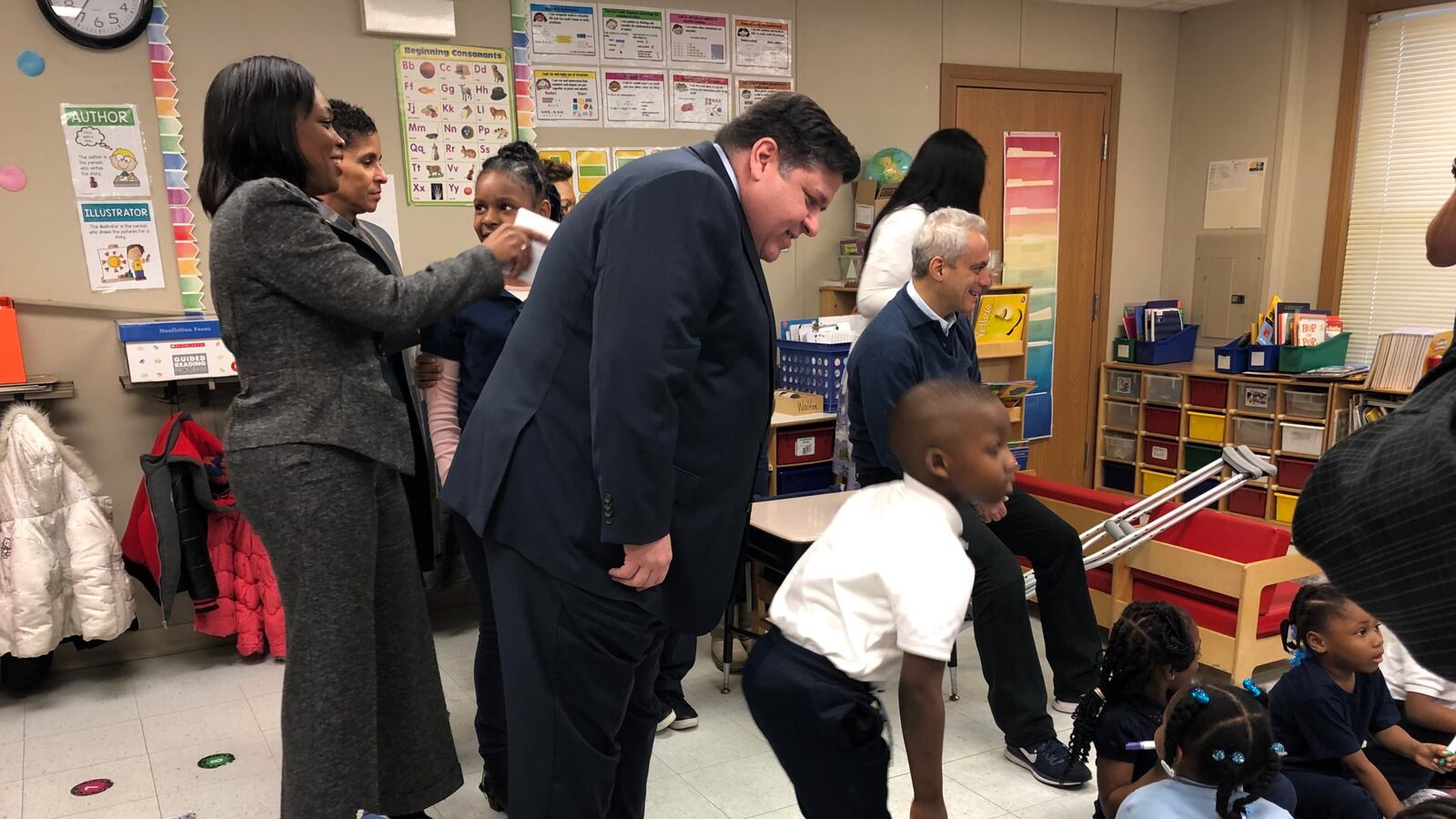In a State of the State speech Wednesday focused on rooting out corruption and rebuilding a tattered state government, Illinois Gov. J.B. Pritzker underscored his promise to make Illinois “the best state in the nation to raise a young family” but offered few hints about how much he would invest to help do that.
“Putting our state back on the side of working families is important,” said the first-term governor, who touted what he accomplished in his first year but not what he planned to do going forward. He called out the expansion of a child care assistance program for working families and investments in college scholarships and other efforts to boost enrollment in state universities.
The governor delivers his budget address in three weeks and that’s when more specifics about his spending plans will materialize. Wednesday’s remarks did not offer any hints of whether he will commit significantly more in the way of K-12 dollars, increases that public education advocates are eager to see happen.
Illinois still falls among the middle of the pack in public school spending for its 2 million K-12 students, and less than 40% of elementary schoolers meet state reading and math testing standards. The state school board has asked the governor for 8.6% more in K-12 spending this year, including $510 million more for the state’s funding formula that largely funds school districts. But the governor has told state agency heads to pare down spending, given Illinois’ bill backlogs and massive pension debt.
“It’s a tough spot,” said Robin Steans, president of the policy organization Advance Illinois. “The governor, like most of us, recognizes there are much more significant investments needed if we really want to be the best state in the nation for young families, but at the same time there are budget realities that make that difficult.”
Dan Montgomery, who heads the statewide Illinois Federation of Teachers union, said he expects full funding to come through for the K-12 formula and for the state-funded teachers pension system, even if it didn’t surface in Wednesday’s speech. “Making the full funding payment will be important to us,” he said.
One mention Wednesday that gave Montgomery and others reason for optimism: Pritzker’s recognition that the state must do more to alleviate a painful teacher shortage.
“It’s inspiring to have a governor who has faith in the people of the state,” said Montgomery, who sees a progressive income tax proposal as a critical way to boost long-term funding.
Last year Illinois passed a minimum wage requirement for teachers and eased rules on licensing for out-of-state teachers — something Pritzker mentioned in his speech. He didn’t bring up the state’s decision to eliminate the basic skills test for teachers — a controversial move welcomed by some educators and panned by others — and legislation to tackle a shortage of bilingual and special education teachers, including raising the wage floor for student teachers.
Pritzker’s address Wednesday was more evidence that early education will be a key item in his first-term agenda. His speech singled out a child care provider in downstate Marion whose top-rated center had suffered years of funding instability and staff cuts and was on the brink of closure, a familiar reality in several counties. Through boosts in state reimbursements, the center can now rebuild enrollment and invest in hiring and training, he said. “Thanks to our bipartisan investments, dozens more parents in Marion can go to work.”
As a candidate, Pritzker said he hoped to pave a path to universal preschool for 3- and 4-year-olds, an endeavor gaining steam in other states. But he has acknowledged some substantial roadblocks, namely a budget shortfall.
That helps explain why he has prioritized foundation building and convened a new early education finance commission. He announced last week expanded home visiting programs for families with infants and said his administration will work toward improving pay for early childhood workers.


